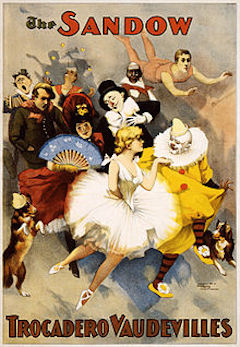One thing we think we know about the Republicans is that they take a dim view of waste, fraud and abuse. So how come the U.S. House of Representatives, in Republican hands, has voted 56 times to repeal or cripple the Affordable Care Act, better known as Obamacare?
They've put forth this extraordinary effort despite an explicit veto threat from President Obama. Their repeated effort reminds one of Onan in the Bible, which politely says he spilled his seed on the ground.
It’s a waste of the legislative calendar and the talents of the House members. It’s a fraud because it gives the impression that the House is doing the people’s business when it is holding a protracted political rally. It’s an abuse of those who need health care because it introduces uncertainty into the system for providers, from the insurers to the home-care visitors.
It’s symptomatic of the political hooliganism which has taken over our politics, where there is little to choose between the protagonists.
Republican groups think that Obama is the doer of all evil in the nation — especially to the economy — and the world. Daily their Democratic counterparts gush vitriol against all the potential Republican presidential candidates, only pausing for an aside about the wickedness of Fox News.
Their common accusation is middle-class job woes. They’re on to something about jobs, but not the way the debate on jobs is being framed.
The political view of jobs is more jobs of the kind that we once thought of as normal and inevitable. But the nature of work is changing rapidly, and it cries out for analysis.
The model of the corporation that employs a worker at reasonable wages that rise every year, toward a defined-benefit pension, is over. Today’s businesses are moving toward a model of employment at will; the job equivalent of the just-in-time supply chain.
While more of us are becoming, in fact, self-employed, the structure of law and practice hasn’t been modified to accommodate the worker who may never know reliable, full-time employment.
The middle-class job market is being commoditized, as the pay-per-hour labor market includes everything from construction to network administration. Sports Illustrated — synonymous with great photography — has just fired all six of its staff photographers. Don’t worry, the great plays will still be recorded and the Swimsuit Issue will still titillate, but the pictures will be taken by freelancers and amateurs.
Two forces are changing the nature of work. First, the reality that has devastated manufacturing: U.S. workers are in competition with the global labor pool, and business will always take low-cost option. If unemployment goes up in China, that will be felt in the U.S. workplace. Second is the march of technology; its disruptive impact is the new normal. Accelerated change is here to stay.
All is not gloom. The trick is to let the old go — particularly difficult for Democrats — and to let the new in. There will be new entrepreneurs; more small, nimble businesses; and whole new directions of endeavor, from gastro-tourism to cottage-industry manufacturing, utilizing 3D printing. Individuals will be free in a new way.
Government needs to think about this and devise a new infrastructure that recognizes that the nature of work is changing. The emerging new economy should have simplified taxes and Social Security payments for the self-employed; portable, affordable health care; and universal catastrophe insurance, so that those who are not under an employer umbrella can benefit from the equivalent of workers’ compensation. The self-employed, rightly, fear the day they can’t work.
Rugged individualism has a new face. The political class needs to look and see the new workplace.
Llewellyn King (lking@kingpublishing.com), an occasional contributor, is executive producer and host of “White House Chronicle” on PBS.









